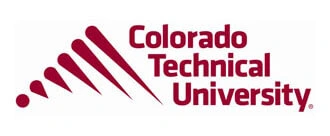Colorado Technical University's Doctor of Management in Private Sector Higher Education Leadership program is designed to give students the opportunity to study current techniques and trends in the world of education as well as strategies for directing and organizing groups and resources. Read on to find out more now.
<h2 id="section---FrequentlyAskedQuestions">Frequently Asked Questions</h2>
<h3 id="section---WhatKindOfProgramIsIt">What Kind of Program Is It?</h3>
<p>The Doctor of Management in Private Sector Higher Education Leadership program at Colorado Technical University is meant to help students get a look at what sorts of structural and regulatory skills are required of those who work as leaders in the education world. Coursework is designed to focus on current practices in school and educational organizations alongside more broad research and management topics. Students will be asked to draw off of their already strong organizational skills and knowledge to improve their abilities as an instructor and a strategic thinker. By the end of the course, students will be required to complete a series of doctoral research courses and then defend their research through a dissertation to graduate. This program is offered online and at select Colorado Technical University campuses.
</p>
<h3 id="section---WhatAreThePrerequisites">What Are the Prerequisites?</h3>
<p>Applicants to this program should have a passion for education and a strong sense of how to direct and organize people efficiently. They should already have a bachelor's degree prior to enrolling. Applicants to all of Colorado Technical University's programs must have a high school diploma or equivalent; some programs have additional requirements.
</p>
<h3 id="section---WhatAreTheCourseRequirements">What Are the Course Requirements?</h3>
<p>This Colorado Technical University's total of 96 credit hours are broken down into two categories. The core courses make up 76 credit hours and the concentration courses make up 20 credit hours. Many of the core courses are doctoral research topics.
</p>
<p><u>Doctor of Management in Private Sector Higher Education Leadership Course Requirements</u>
</p>
<p />
<table border="1"><tr><th>Course Code</th><th>Course Name</th></tr>
<tr><td>MGMT802</td><td> Management Theory</td></tr>
<tr><td>MGMT804</td><td> Principles of Research Methods and Design</td></tr>
<tr><td>MGMT808</td><td> Management and Ethics</td></tr>
<tr><td>MGMT812</td><td> Qualitative Research Methods</td></tr>
<tr><td>MGMT814</td><td> Quantitative Research Methods</td></tr>
<tr><td>MGMT818</td><td> Leadership Theory and Development</td></tr>
<tr><td>MGMT822</td><td> Application of Action Research</td></tr>
<tr><td>MGMT824</td><td> Strategic Thinking and Organizational Alignment</td></tr>
<tr><td>MGMT828</td><td> Practice and Theory of Consulting and Intervention</td></tr>
<tr><td>MGMT832</td><td> Organization Innovation and Scenario Thinking</td></tr>
<tr><td>MGMT860</td><td> Doctoral Research I: Principles of Research and Writing</td></tr>
<tr><td>MGMT861</td><td> Doctoral Research II: Annotated Bibliography</td></tr>
<tr><td>MGMT862</td><td> Dissertation Research Process</td></tr>
<tr><td>MGMT863</td><td> Doctoral Research III: Dissertation Literature Review</td></tr>
<tr><td>MGMT864</td><td> Doctoral Research IV: Dissertation Methods</td></tr>
<tr><td>MGMT865</td><td> Doctoral Research V: Dissertation Introduction</td></tr>
<tr><td>MGMT866</td><td> Doctoral Research VI: Dissertation Findings</td></tr>
<tr><td>MGMT867</td><td> Doctoral Research VII: Dissertation Discussion and Conclusion</td></tr>
<tr><td>MGMT868</td><td> Doctoral Research VIII: Dissertation Conclusion</td></tr>
</table><p><u>Concentration Courses</u>
</p>
<p />
<table border="1"><tr><th>Course Code</th><th>Course Name</th></tr>
<tr><td>HEDL870</td><td> Higher Education Organizational Structure and Design</td></tr>
<tr><td>HEDL872</td><td> Higher Education Learning Outcomes</td></tr>
<tr><td>HEDL874</td><td> Policy and Regulatory Practices in Higher Education</td></tr>
<tr><td>HEDL876</td><td> Managing Resources in Higher Education</td></tr>
<tr><td>HEDL878</td><td> Advanced Career Strategies in Private Sector Higher Education Leadership</td></tr>
</table><h3 id="section---WhatCouldIDoAfterIGraduate">What Could I Do After I Graduate?</h3>
<h4 id="section---CareerOpportunities">Career Opportunities</h4>
<p>Once a student graduates from this program, he or she may be able to apply for entry-level work in education or management as well as positions that require further responsibilities. These positions could rely on the leadership qualities as well as the teaching and coaching techniques emphasized in this program. Graduates could seek jobs working with students, professionals, or school administration.
</p>
<p>Potential career paths include but are not limited to:
</p>
<ul><li>College and university administrator
</li><li>Public school administrator
</li><li>Corporate training leader
</li><li>Educational policy administrator
</li><li>Consultant
</li></ul><p><i>CTU does not guarantee employment or salary. University grants or scholarships are based on established criteria as published in the University's catalog and are awarded after verification that the conditions of eligibility have been met.</i></p>


.svg)


